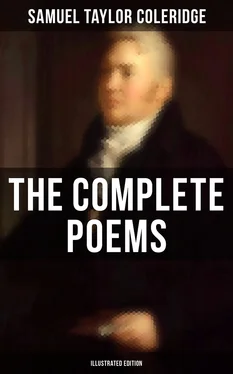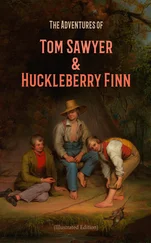COGITARE EST LABORARE
A time will come when passiveness will attain the dignity of worthy activity, when men shall be as proud within themselves of having remained in a state of deep tranquil emotion, whether in reading or in hearing or in looking, as they now are in having figured away for an hour. Oh! how few can transmute activity of mind into emotion! Yet there are as active as the stirring tempest and playful as the may-blossom in a breeze of May, who can yet for hours together remain with hearts broad awake, and the understanding asleep in all but its retentiveness and receptivity . Yea, and (in) the latter (state of mind) evince as great genius as in the former.
A SHEAF OF ANECDOTES, Sunday morning, Feb. 5, 1804
I called on Charles Lamb fully expecting him to be out, and intending all the way, to write to him. I found him at home, and while sitting and talking to him, took the pen and note-paper and began to write.
As soon as Holcroft heard that Mary Wollstonecraft was dead, he took a chaise and came with incredible speed to "have Mrs. Godwin opened for a remarkable woman!"
Sunday morning, Feb. 13, 1804
Lady Beaumont told me that when she was a child, previously to her saying her prayers, she endeavoured to think of a mountain or great river, or something great, in order to raise up her soul and kindle it.
Rickman has a tale about George Dyer and his "Ode to the Hero Race." "Your Aunt, Sir," said George to the Man of Figures, "your Aunt is a very sensible woman. Why I read Sir, my Ode to her and she said that it was a very pretty Thing. There are very few women, Sir! that possess that fine discrimination, Sir!"
The huge Organ Pipe at Exeter, larger than the largest at Haarlem, at first was dumb. Green determined to make it speak, and tried all means in vain, till at last he made a second pipe precisely alike, and placed it at its side. Then it spoke.
Sir George Beaumont found great advantage in learning to draw from Nature through gauze spectacles.
At Göttingen, at Blumenbach's lectures on Psychology, when some anatomical preparations were being handed round, there came in and seated himself by us Englishmen a Hospitator , one, that is, who attends one or two lectures unbidden and unforbidden and gratis, as a stranger, and on a claim, as it were, of hospitality. This Hospes was the uncouthest, strangest fish, pretending to human which I ever beheld. I turned to Greenough and "Who broke his bottle?" I whispered.
Godwin and Holcroft went together to Underwood's chambers. "Little Mr. Underwood," said they, "we are perfectly acquainted with the subject of your studies, only ignorant of the particulars. What is the difference between a thermometer and a barometer?"
THE ADOLESCENCE OF LOVE
It is a pleasure to me to perceive the buddings of virtuous loves, to know their minutes of increase, their stealth and silent growings—
A pretty idea, that of a good soul watching the progress of an attachment from the first glance to the time when the lover himself becomes conscious of it. A poem for my "Soother of Absence."
THE RAGE FOR MONITION
To J. Tobin, Esq., April 10, 1804.
Men who habitually enjoy robust health have, too generally, the trick, and a very cruel one it is, of imagining that they discover the secret of all their acquaintances' ill health in some malpractice or other; and, sometimes, by gravely asserting this, here there and everywhere (as who likes his penetration [hid] under a bushel?), they not only do all they can, without intending it, to deprive the poor sufferer of that sympathy which is always a comfort and, in some degree, a support to human nature, but, likewise, too often implant serious alarm and uneasiness in the minds of the person's relatives and his nearest and dearest connections. Indeed (but that I have known its inutility, that I should be ridiculously sinning against my own law which I was propounding, and that those who are most fond of advising are the least able to hear advice from others, as the passion to command makes men disobedient) I should often have been on the point of advising you against the two-fold rage of advising and of discussing character, both the one and the other of which infallibly generates presumption and blindness to our own faults. Nay! more particularly where, from whatever cause, there exists a slowness to understand or an aptitude to mishear and consequently misunderstand what has been said, it too often renders an otherwise truly good man a mischief-maker to an extent of which he is but little aware. Our friends' reputation should be a religion to us, and when it is lightly sacrificed to what self-adulation calls a love of telling the truth (in reality a lust of talking something seasoned with the cayenne and capsicum of personality), depend upon it, something in the heart is warped or warping, more or less according to the greater or lesser power of the counteracting causes. I confess to you, that being exceedingly low and heart-fallen, I should have almost sunk under the operation of reproof and admonition (the whole too, in my conviction, grounded on utter mistake) at the moment I was quitting, perhaps for ever! my dear country and all that makes it so dear—but the high esteem I cherish towards you, and my sense of your integrity and the reality of your attachment and concern blows upon me refreshingly as the sea-breeze on the tropic islander. Show me anyone made better by blunt advice, and I may abate of my dislike to it, but I have experienced the good effects of the contrary in Wordsworth's conduct to me; and, in Poole and others, have witnessed enough of its ill effects to be convinced that it does little else but harm both to the adviser and the advisee.
[See Letters of Samuel Taylor Coleridge , Letter cli., ii. 474, 475.]
PLACES AND PERSONS, Thursday, April 19, 1804
This is Spain! That is Africa! Now, then, I have seen Africa! &c., &c. O! the power of names to give interest. When I first sate down, with Europe on my left and Africa on my right, both distinctly visible, I felt a quickening of the movements in the blood, but still it felt as a pleasure of amusement rather than of thought or elevation; and at the same time, and gradually winning on the other, the nameless silent forms of nature were working in me, like a tender thought in a man who is hailed merrily by some acquaintance in his work, and answers it in the same tone. This is Africa! That is Europe! There is division , sharp boundary, abrupt change! and what are they in nature? Two mountain banks that make a noble river of the interfluent sea, not existing and acting with distinctness and manifoldness indeed, but at once and as one—no division, no change, no antithesis! Of all men I ever knew, Wordsworth himself not excepted, I have the faintest pleasure in things contingent and transitory. I never, except as a forced courtesy of conversation, ask in a stage-coach, Whose house is that? nor receive the least additional pleasure when I receive the answer. Nay, it goes to a disease in me. As I was gazing at a wall in Caernarvon Castle, I wished the guide fifty miles off that was telling me, In this chamber the Black Prince was born (or whoever it was). I am not certain whether I should have seen with any emotion the mulberry-tree of Shakspere. If it were a tree of no notice in itself, I am sure that I should feel by an effort—with self-reproach at the dimness of the feeling; if a striking tree, I fear that the pleasure would be diminished rather than increased, that I should have no unity of feeling, and find in the constant association of Shakspere having planted it an intrusion that prevented me from wholly (as a whole man) losing myself in the flexures of its branches and intertwining of its roots. No doubt there are times and conceivable circumstances in which the contrary would be true, in which the thought that under this rock by the sea-shore I know that Giordano Bruno hid himself from the pursuit of the enraged priesthood, and overcome with the power and sublimity of the truths for which they sought his life, thought his life therefore given him that he might bear witness to the truths, and morti ultra occurrens , returned and surrendered himself! So, here, on this bank Milton used to lie, in late May, when a young man, and familiar with all its primroses, made them yet dearer than their dear selves, by that sweetest line in the Lycidas, "And the rathe primrose that forsaken dies:" or from this spot the immortal deer-stealer, on his escape from Warwickshire, had the first view of London, and asked himself, And what am I to do there? At certain times, uncalled and sudden, subject to no bidding of my own or others, these thoughts would come upon me like a storm, and fill the place with something more than nature. But these are not contingent or transitory, they are nature, even as the elements are nature—yea, more to the human mind, for the mind has the power of abstracting all agency from the former and considering [them] as mere effects and instruments. But a Shakspere, a Milton, a Bruno, exist in the mind as pure action , defecated of all that is material and passive. And the great moments that formed them—it is a kind of impiety against a voice within us, not to regard them as predestined, and therefore things of now, for ever, and which were always. But it degrades the sacred feeling, and is to it what stupid superstition is to enthusiastic religion, when a man makes a pilgrimage to see a great man's shin-bone found unmouldered in his coffin. Perhaps the matter stands thus. I could feel amused by these things, and should be, if there had not been connected with the great name upon which the amusement wholly depends a higher and deeper pleasure, that will [not] endure the co-presence of so mean a companion; while the mass of mankind, whether from nature or (as I fervently hope) from error of rearing and the worldliness of their after-pursuits, are rarely susceptible of any other pleasures than those of amusement , gratification of curiosity, novelty, surprise, wonderment, from the glaring, the harshly-contrasted, the odd, the accidental, and find the reading of the Paradise Lost a task somewhat alleviated by a few entertaining incidents, such as the pandemonium and self-endwarfment of the devils, the fool's paradise and the transformation of the infernal court into serpents and of their intended applauses into hisses.
Читать дальше












